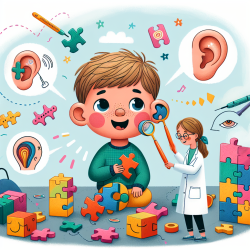The recent study "Expectations and Concerns about the Use of Telemedicine for Autism Spectrum Disorder: A Cross-Sectional Survey of Parents and Healthcare Professionals" offers valuable insights for practitioners looking to enhance their telemedicine skills. The study compares the expectations and concerns of 50 healthcare professionals and 45 parents regarding the use of telemedicine for ASD diagnosis and treatment.
Key Findings:
- Higher Expectations Among Parents: Parents showed significantly higher expectations for telemedicine as an alternative and complement to in-person diagnosis and intervention. They also believed it could improve family routines and parenting skills.
- Concerns About Active Involvement: Parents were more concerned about the need for active parental involvement and supervision during telemedicine sessions.
- Technological Barriers for Healthcare Professionals: Healthcare professionals were more worried about the lack of devices, unfamiliarity with technology, and poor internet quality.
- Severity of ASD: Healthcare professionals expressed concerns about the effectiveness of telemedicine for severe cases of ASD.
Practical Steps for Practitioners:
- Address Technological Barriers:
- Ensure that both you and the families you serve have access to reliable internet and necessary devices.
- Provide training sessions to familiarize both parties with the telemedicine platform.
- Prepare for Active Parental Involvement:
- Develop guidelines and resources to help parents understand their role during telemedicine sessions.
- Offer flexible scheduling to accommodate parents' availability.
- Tailor Interventions Based on Severity:
- Assess the severity of ASD in each case to determine the suitability of telemedicine.
- For severe cases, consider a hybrid model that combines in-person and telemedicine sessions.
- Enhance Communication:
- Use clear, simplified language and visual aids to ensure effective communication during sessions.
- Provide pre-session materials to prepare parents and children for what to expect.
- Monitor and Adapt:
- Regularly collect feedback from parents and healthcare professionals to identify areas for improvement.
- Stay updated with the latest research and technological advancements in telemedicine.
Encouraging Further Research:
The study highlights the need for more research on telemedicine's long-term effectiveness and its impact on different severity levels of ASD. Practitioners are encouraged to participate in or conduct further studies to continually refine telemedicine practices.
To read the original research paper, please follow this link: Expectations and Concerns about the Use of Telemedicine for Autism Spectrum Disorder: A Cross-Sectional Survey of Parents and Healthcare Professionals.










